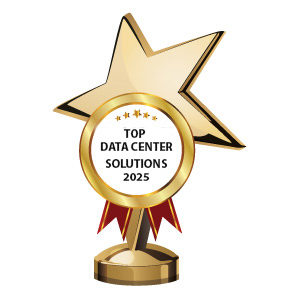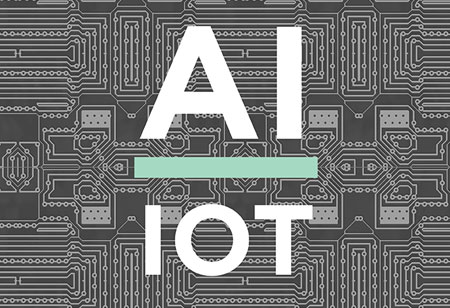THANK YOU FOR SUBSCRIBING

Top Data Center Solutions - 2025

Nominate a Company
Usually, the qualified subscribers of our magazine nominate companies with whom they have collaborated and experienced exceptional results to be in this list. Did a company you recently worked with give you stellar results and ROI? Did it turn out to be one you would wholeheartedly recommend to peers? Or do you know of such an outstanding company through your network? Please fill in the details below and nominate them to be featured here.
*
Thank You!

We are glad to receive your nomination. Our editorial team and evaluation panel will review your submission. Thank you for taking the time to highlight an organization driving impactful change in APAC CIOOutlook.
Data not inserted
ADC Group provides mission-critical infrastructure for Hyperscale AI data centers across South Asia Region. It specializes in critical power, high-density cooling and AI monitoring and management solutions. As an experience prefabrication systems designer & integrator, it provides end-to-end seamlessly support—from product selection and system design to installation, commissioning and ongoing maintenance.
Chindata Group is a leading carrier-neutral hyperscale data center provider in Asia-Pacific, offering colocation, energy procurement, and IT infrastructure services. Focused on innovation and sustainability, it aims for 100% renewable energy while delivering scalable, high-performance solutions across China, India, and Southeast Asia.
DapuStor, a global leader in enterprise SSD technology, specializes in controller design, SSDs, and storage solutions. Offering high-performance PCIe 4.0 and 5.0 NVMe eSSDs, the company delivers innovation with 300+ patents, advanced firmware, and superior power efficiency for data centers worldwide.
Optec Technology specializes in multi-fiber engineering solutions, offering high-density, high-bandwidth, and scalable cabling for data centers, enterprise networks, telecom, and industrial applications. With a commitment to innovation, Optec delivers superior fiber optic products and professional services worldwide.
Princeton Digital Group (PDG) is a leading pan-Asia data center platform, offering hyperscale, AI-ready infrastructure across key digital economies. Committed to sustainability, PDG integrates ESG principles, aiming for Net Zero emissions while delivering scalable, customer-centric, and high-quality solutions.
Safar Gemilang Sdn. Bhd., specializes in IT infrastructure design, installation, and maintenance. Offering international and domestic rack & stack and cabling services, the company delivers innovative, high-quality solutions worldwide, ensuring reliable IT networks and exceptional customer service tailored to diverse business needs.
Top Data Center Solutions - 2025
More in News
AI's Role in Accelerating Resource Development Across APAC
Thursday, October 23, 2025
Fremont, CA: The Asia-Pacific (APAC) region, with its diverse and complex geology, represents a critical frontier for mineral resource exploration. As demand for essential minerals continues to rise globally, the industry is increasingly turning to Artificial Intelligence (AI) and Machine Learning (ML) to revolutionize the discovery process. This technological leap is fundamentally changing how geoscientists interpret vast, multi-layered datasets, leading to a new era of predictive and efficient exploration. Data Fusion and Pattern Recognition At the heart of AI's transformative power is its exceptional ability to integrate multi-source data. Traditional exploration relies on human analysis of disparate datasets—geophysical surveys, geochemical samples, remote sensing imagery, and historical drilling logs. Machine learning algorithms, however, can ingest and fuse these massive, heterogeneous data streams simultaneously. By applying sophisticated computational methods, ML algorithms like Random Forests and Convolutional Neural Networks (CNNs) can identify subtle, non-linear relationships and hidden geological patterns that are often invisible to the human eye. This capability allows for the generation of a more comprehensive and coherent understanding of the subsurface geology, moving beyond isolated pieces of evidence. Enhancing Prospectivity Modeling The primary application of machine learning in exploration is prospectivity modeling. This process moves away from purely subjective targeting to a data-driven, probabilistic approach. Algorithms are trained on known mineral occurrences and their associated geological, geophysical, and geochemical signatures. Once trained, the models can then predict the likelihood of new mineral deposits across expansive, little-explored areas. This capability is particularly vital in the APAC region, where much of the potential remains concealed beneath thick cover, soil, or complex tectonic environments. The output is typically a mineral predictive map that visually delineates high-potential target zones, allowing exploration teams to focus their efforts and resources with unprecedented precision. ML is also driving advancements in creating more accurate and detailed 3D Earth models. By clustering and classifying downhole logs, bore-core images, and seismic data, AI can automate the complex task of lithological mapping and structural interpretation in three dimensions. This deeper, three-dimensional understanding of the orebody's geometry, continuity, and grade distribution is crucial not only for initial discovery but also for later resource estimation. AI helps to model the spatial relationships between different geological units and mineralization controls, providing a robust digital twin of the subsurface that can be virtually explored and refined. The long-term trajectory sees machine learning moving towards real-time intelligence in the field. This includes the development of automated systems that can analyze data from drone surveys or in-situ drilling sensors instantaneously. Furthermore, AI techniques are being explored for real-time mineral classification on rock samples and drill chips, accelerating decision-making and optimizing drilling strategies as work progresses. AI is equipping the exploration industry in the APAC region with an objective, data-intensive toolset that significantly enhances the ability to make meaningful discoveries. It transforms exploration from a high-risk endeavor based heavily on intuition into a calculated, technologically-backed process.
Business Ability Amplification Powered By IoT And AI
Wednesday, October 22, 2025
A discussion about recent technological milestones would be incomplete without a mention of the Internet of Things and Artificial Intelligence, technologies that have influenced almost every sphere of life. The amalgamation of IoT with artificial intelligence would possibly give birth to applications that will make routines a lot more convenient. A fine illustration of this blend would probably be a smartwatch which comprehends body fluctuations such as variations in the heartbeat and pulse and notifies the concerned. A recent article published by 'Wired' stated that IoT will be significantly AI-driven in the years to come. Myriad electronic devices embedded with sensors would pave the way for a data deluge overwhelmingly large to retrieve the right information or draw inferences from. Application of AI techniques such as machine learning would help in the derivation of patterns from large data volumes that could help in better decision making. A music platform which offers several hundred thousand tracks is another instance that would help in better understanding the application of AI to derive useful data patterns. A display of suggested playlists which might suit the tastes of the user, based on the track currently playing not just makes the channel user-friendly but also betters brand perception. Industry veterans predict an upswing in futuristic technological innovations that leverage AI and IoT, considering the rapid evolution of both the technologies.
Impact of AI on Digital Marketing in the APAC Region
Tuesday, October 21, 2025
Fremont, CA: In the Asia-Pacific (APAC) region, digital advertising is undergoing a transformation as Artificial Intelligence (AI) increasingly shapes the way brands communicate with their audiences. Moving past basic automation, AI-driven advertising platforms can now engage consumers with subtlety and effectiveness, leading to more intelligent brand interactions that build stronger connections and result in notable conversions. The Evolution of Personalization in Advertising At the core of this transformation is the ability of AI to revamp personalization. Traditional advertising often relies on broad demographic targeting. However, modern AI platforms leverage vast datasets to understand individual consumer preferences, behaviors, and even real-time intent. This granular understanding allows for the delivery of hyper-personalized content, ensuring that each ad resonates directly with the recipient. Imagine an advertising platform that not only knows what a consumer has browsed but can also infer their current needs and anticipate their next steps, serving up an offer that feels uniquely tailored and timely. This goes beyond just product recommendations; it extends to the very messaging, visuals, and even the platform on which the ad is delivered, optimizing for maximum relevance and impact. The Shift towards Conversational Advertising One of the most profound shifts driven by AI is the rise of conversational advertising. Advertising platforms are no longer just broadcasting messages; they are facilitating genuine, two-way interactions. Through sophisticated natural language processing (NLP) and machine learning, AI-powered chatbots and virtual assistants are becoming integral to the customer journey. These intelligent agents can engage consumers in natural, human-like conversations, answering questions, providing detailed product information, guiding them through purchase processes, and even offering post-purchase support. This ability to "talk" to consumers in real-time creates a seamless and intuitive experience, fostering a sense of direct engagement with the brand. In the diverse linguistic landscape of APAC, AI's multilingual capabilities are particularly transformative, enabling brands to communicate effectively with a vast array of audiences in their native tongues, breaking down communication barriers and building trust. Beyond talking, these platforms are constantly learning. Machine learning algorithms embedded within advertising platforms continuously analyze every interaction, click, and conversion to refine their strategies. This iterative learning process allows the AI to identify emerging trends, optimize bidding strategies in real-time, and predict future consumer behavior with remarkable accuracy. This means that advertising campaigns are not static; they are living, evolving entities that adapt and improve based on performance data. The insights gleaned from these self-learning systems empower brands to allocate their resources more efficiently, identify new market opportunities, and consistently enhance the effectiveness of their campaigns. The ultimate goal of this smarter engagement is, of course, conversion. By engaging with consumers in a personalized manner and continually learning from their interactions, AI-powered advertising platforms are significantly enhancing the path to conversion. Real-time optimization of ad placement, content, and delivery ensures that the right message reaches the right person at the right moment of intent. The seamless transition from conversational engagement to a purchase decision, often within the same platform, streamlines the customer journey and reduces friction. This holistic approach, from initial awareness to final conversion, is a testament to the integrated power of AI in modern advertising. In the APAC region, with its diverse markets and rapid digital adoption, AI-powered advertising platforms are becoming indispensable tools for brands seeking to forge stronger connections, cultivate loyalty, and drive tangible business growth. With AI's transformative capabilities, brand engagement will be conversational, intelligent, and relentlessly optimized.
Strategic Data Consulting Across Clouds in APAC
Monday, October 20, 2025
The role of the database consultant has undergone a profound transformation, evolving from a server-room specialist into a strategic cloud architect. In an era where data is the lifeblood of enterprise, the shift from predictable, on-premises environments to the distributed world of the cloud has completely redefined the value and function of database expertise. This evolution is not merely a change in tooling but a fundamental paradigm shift in how data is managed, accessed, and leveraged for business growth. The consultant's journey mirrors the industry's own migration: from hardware-centric administration to software-defined strategy, shaping the very foundation of modern digital enterprises. From On-Premise to Hybrid and Multi-Cloud Architectures For decades, the database consultancy world was anchored in the physical realm. The core practice revolved around on-premises deployments, where consultants were masters of hardware sizing, intricate software installations, and manual performance tuning. Their expertise was measured by their ability to extract maximum performance from a fixed set of resources within a company's own data center. The database was a monolith, a well-understood, self-contained universe. The advent of the cloud introduced a new architectural philosophy. Initially, businesses adopted a hybrid model, seeking to blend the security and control of their on-premise systems with the scalability and flexibility of a public cloud provider. This created the first central pivot for consultants. Their role expanded from managing isolated systems to becoming integration specialists. The new mandate was to build secure, high-performance data bridges between these two worlds, ensuring data could flow seamlessly and consistently, irrespective of its physical location. This quickly evolved into the multi-cloud paradigm. Organizations now strategically leverage services from multiple cloud providers—AWS, Azure, Google Cloud, and others—to access best-of-breed technologies, enhance resilience, and optimize costs. For the database consultant, this transforms the landscape from a single kingdom into a complex, interconnected federation. The focus shifts to creating a unified data fabric, an architectural approach that abstracts away the underlying complexity of different environments. The consultant is now a cartographer of data, mapping out data sovereignty requirements to ensure regulatory compliance across various jurisdictions in regions such as APAC, and designing architectures that are resilient, portable, and vendor-agnostic. The DBaaS Revolution and Its Impact on Consultancy The rise of Database-as-a-Service (DBaaS) has emerged as one of the most transformative forces in the evolution of database management. By offering fully managed services, cloud providers have automated many of the complex, time-intensive tasks that once dominated a database administrator’s responsibilities. Processes such as provisioning, patching, backups, replication, and scaling can now be executed with minimal effort—often through a few clicks in a management console or a handful of lines of code. This automation has redefined the role of the modern database consultant, shifting it away from routine system maintenance and toward more strategic contributions of higher value. No longer focused on “keeping the lights on,” consultants are now empowered to engage in work that directly enhances business outcomes. Their expertise is increasingly focused on critical areas, such as strategic data modeling, where schemas are optimized for cloud-native applications, serverless architectures, and distributed global environments. Performance engineering has also evolved, emphasizing query optimization, indexing strategies, and application-level performance analysis rather than server-level tuning. Another key focus is cost optimization through FinOps, where consultants analyze usage patterns and recommend policies around resource allocation, reserved instances, and auto-scaling to manage the often unpredictable costs of cloud consumption. Additionally, consultants guide organizations in leveraging advanced features within the broader cloud ecosystem, from integrated machine learning tools and analytics platforms to serverless query engines that expand the utility of the core database service. Ultimately, DBaaS has elevated the consultant’s role from that of a technician to that of an architect—designing and shaping the entire data ecosystem rather than fine-tuning a single engine. This evolution underscores the growing strategic importance of database consultancy in driving efficiency, scalability, and innovation in the cloud era. Navigating the APAC Vendor Ecosystem The primary cloud hyperscalers—Amazon Web Services (AWS), Microsoft Azure, and Google Cloud Platform (GCP)—offer a dizzying array of database options, ranging from managed versions of popular open-source databases, such as PostgreSQL and MySQL, to their own proprietary, globally scaled solutions. Alongside them, established giants like Oracle continue to evolve, offering their powerful database technologies within their own cloud infrastructure and as services on other platforms. Furthermore, specialized data platform providers like Snowflake have emerged as dominant forces in the cloud data warehousing and analytics space, offering a unique architecture that optimizes storage and compute separation. In this environment, the database consultant acts as an impartial, expert navigator. Their role is to look beyond the marketing and understand the deep technical nuances of each platform. The advisory process is no longer about choosing a single database technology but about composing a solution from a portfolio of services. The consultant's value is derived from their extensive polyglot expertise, encompassing fluency in AWS RDS, Azure SQL, Google Cloud Spanner, and Snowflake. This proficiency enables the design of architectures that effectively harmonize the strengths of each platform to achieve specific business outcomes. This necessitates continuous professional development and a comprehensive grasp of the entire cloud data stack, including ingestion, analytics, and governance. The contemporary consultant serves as a reliable guide within this intricate and multifaceted ecosystem.
Cybersecurity ROI: Measuring the Value of Prevention in APAC
Friday, October 17, 2025
Fremont, CA: The Asia-Pacific (APAC) region is characterized by rapid digital transformation and increasing interconnectedness. While this technological momentum drives economic growth, it simultaneously expands the digital attack surface, making robust cybersecurity a fundamental business imperative. In this environment, demonstrating the Return on Investment (ROI) for cybersecurity, particularly for preventive measures, is critical for securing executive support and strategic resource allocation. Cybersecurity ROI is distinct from traditional investment calculations, as its primary value lies in loss avoidance and risk mitigation, not direct revenue generation. Key Preventive Metrics and Value Indicators In the APAC cybersecurity landscape, the value of prevention is best demonstrated through quantifiable Key Performance Indicators (KPIs) that measure both operational efficiency and risk reduction. Investments in automation and advanced detection tools enhance timeliness and control by reducing the escalation window of nascent threats. Metrics such as Mean Time to Detect (MTTD) and Mean Time to Contain (MTTC) reflect the organization’s ability to identify and isolate breaches swiftly. At the same time, Patch Latency indicates how quickly vulnerabilities are mitigated through timely updates—all of which collectively strengthen resilience and minimize financial and reputational impact. Equally critical are the metrics that define an organization’s preventive posture. Intrusion Attempts Prevented demonstrates the effectiveness of defensive layers such as firewalls and endpoint security, while a high Vulnerability Remediation Rate indicates efficient closure of exploitable weaknesses. The Effectiveness of Security Awareness Training, often evidenced by lower phishing simulation click rates, underscores the essential role of human vigilance in cybersecurity. Together, these indicators provide a data-driven view of how well-prevention strategies translate into reduced risk exposure and enhanced operational readiness. Intangible Value and Strategic Alignment in APAC Beyond the direct financial calculations of Return on Security Investment (ROSI) and measurable operational metrics, preventative cybersecurity investments deliver substantial—though often less easily quantified—strategic value, particularly for organizations operating in the dynamic and complex APAC market. The region’s rapidly evolving data protection and cybersecurity regulations make proactive investment in robust security controls essential to ensure compliance with diverse legal frameworks, thereby preventing costly fines and mitigating legal risks. Equally important, preventative measures strengthen business continuity and operational resilience by minimizing system downtime and averting disruptive incidents such as ransomware or distributed denial-of-service (DDoS) attacks. This not only safeguards revenue streams but also preserves productivity across critical functions. Furthermore, in an increasingly digital and competitive marketplace, the ability to protect sensitive data underpins customer loyalty, partner confidence, and overall brand reputation. Avoiding breaches helps maintain public trust and brand equity, contributing to long-term commercial sustainability. By combining financial, operational, and strategic performance metrics, organizations in APAC can more effectively articulate the full value of prevention, reframing cybersecurity from a necessary expense into a strategic driver of digital growth, compliance, and resilience. Ultimately, in the hyper-digitalized economies of the Asia-Pacific region, cybersecurity is not merely an expense but a foundational business strategy. The true Return on Investment for Prevention is found in the substantial, calculated avoidance of losses and the measurable enhancement of operational stability. By employing the principles of ROSI—quantifying the value of averted breaches, tracking reductions in Mean Time to Detect and Contain, and demonstrating robust compliance—organizations move beyond simple cost justification. Cybersecurity is thus reframed as a strategic enabler that safeguards not only data and systems, but also revenue, reputation, and competitive advantage. For APAC businesses driving digital ambitions, consistent, proactive investment in security resilience is the pathway to long-term operational success and sustained stakeholder trust.
Harnessing Big Data Analytics to Enhance Business Strategies
Thursday, October 16, 2025
Fremont, CA: To remain competitive, successful companies leverage big data analytics instead of solely relying on intuition. By enhancing their business strategies through data analysis across five key areas, organizations can optimize their operations, effectively engage with their target audience, and develop solutions that provide a distinct competitive advantage. Improving the process: The data of a company’s business invariably exposes many inefficiencies and opportunities. Resource usage scheme, scheduling and process fulfillment are few of the areas that can largely benefit from big data analysis. Use Data to Build Better Products Big data can be used beyond just creating efficiencies in business processes. Using big data to gain insight into the market, trends and customer desires, and fine-tuning the company’s current product offerings is another area that greatly serves the company’s mission, direction and wellbeing. Intelligent Marketing With the help of powerful analytical tools, companies can track levels of consumer engagement, test and drop campaigns, platforms, ads, text or photos that don’t perform well. Check Out This : Manage MKT Data Helps you Retain Your Clients It costs five times more to gain a new customer than to retain an existing one. Companies can reduce customer turnovers by planning regular touch-points to seek out feedback from them. Also they can use the data to incorporate personalization and create a feeling of connection with their customers. Human Capital Management When it comes to improving employee retention as well, use of big data analytics can be of great help. While big data analytics have been touted as an exceptional way to identify the right skills for the job, they run the risk of reducing employees to a list of traits and achievements, alienating potential talent that needs a human point of contact. Using data and behavioral analytics, HR can effectively solve these problems as well.
I agree We use cookies on this website to enhance your user experience. By clicking any link on this page you are giving your consent for us to set cookies. More info


























